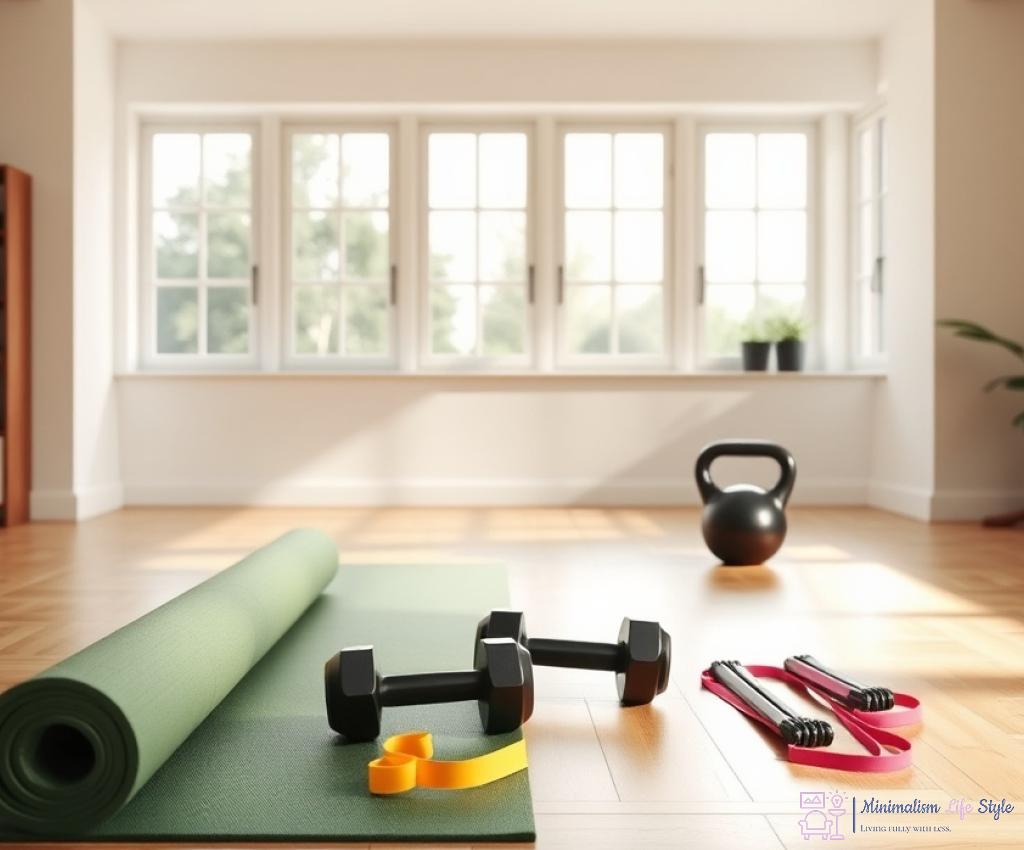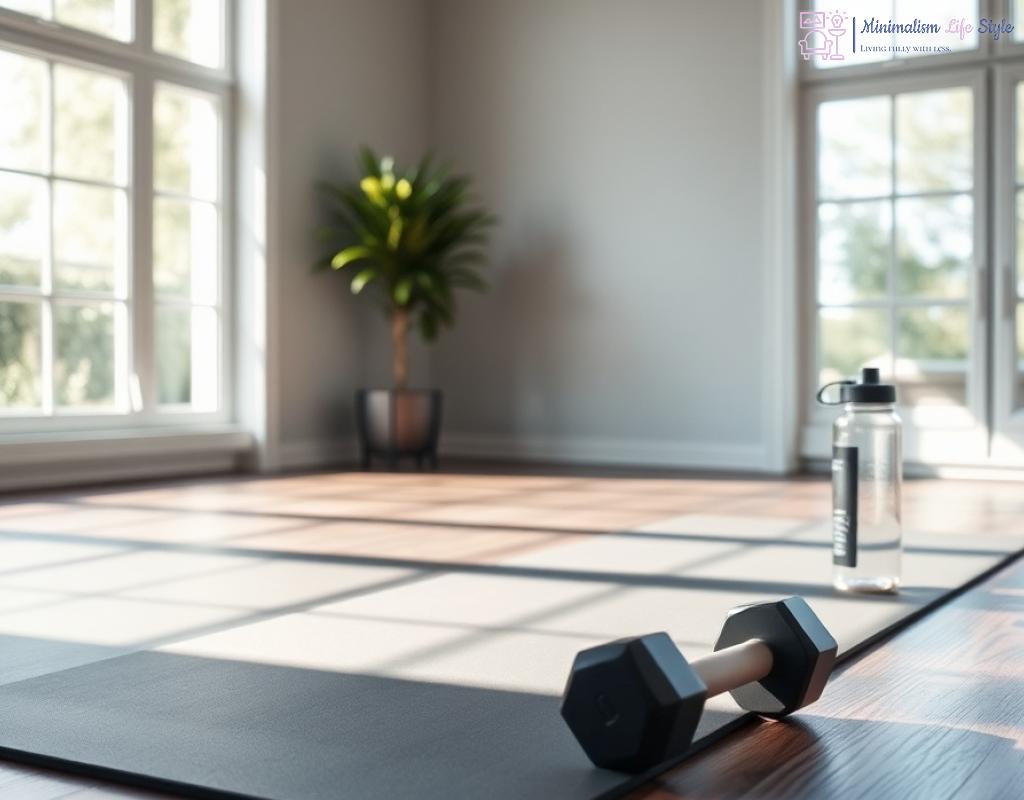Streamlining Your Fitness Routine
In today’s fast-paced world, fitness routines can become overwhelming with countless options, apps, and methods vying for your attention. However, embracing a minimalist approach can help you streamline your fitness routine, making it not only more manageable but also more effective. By focusing on what truly matters, you can maximize your results with less clutter in your workout regimen.
Before diving into a minimalist fitness routine, it’s crucial to identify the core components that drive your progress. This involves evaluating your goals, current practices, and the essentials that contribute to your well-being. By narrowing down your focus, you can create a sustainable fitness plan that fits seamlessly into your lifestyle.
Consider the following essential components:
- Goal Definition: What do you want to achieve? Weight loss, muscle gain, or improved endurance?
- Time Management: How much time can you dedicate each week? Prioritize your workouts based on your schedule.
- Exercise Selection: Choose a few key exercises that target multiple muscle groups effectively.
- Nutrition Basics: Simplify your eating habits by focusing on whole foods and balanced meals.
With your core components identified, it’s time to craft a streamlined routine. This involves selecting a few high-impact exercises and structuring your week around them. The goal is to create a balanced workout plan that keeps you engaged and motivated without feeling overwhelmed.
| Day | Workout Focus | Duration |
|---|---|---|
| Monday | Full-body Strength | 45 min |
| Wednesday | Cardio & Core | 30 min |
| Friday | Flexibility & Recovery | 30 min |
By concentrating on a few key workouts each week, you can ensure that your fitness journey remains sustainable and enjoyable. Remember, the ultimate goal is to make progress while minimizing the noise and distractions that often accompany traditional fitness routines.
The Power of Setting SMART Goals

In the pursuit of fitness, it’s all too easy to get lost in a sea of aspirations that can feel overwhelming and unattainable. This is where the concept of SMART goals comes into play, offering a beacon of clarity amidst the chaos. By applying the SMART criteria—Specific, Measurable, Achievable, Relevant, and Time-bound—you can transform vague ambitions into actionable plans that drive sustainable progress.
When your fitness goals are specific, they become much easier to pursue. Instead of saying, “I want to get fit,” a specific goal would be, “I want to run a 5K.” This clear definition not only fuels motivation but also allows you to devise a straightforward plan to achieve it.
Measuring progress is crucial in maintaining momentum. By setting quantifiable targets, such as “I will lose 10 pounds in three months” or “I will increase my squat by 20 pounds in four weeks,” you create tangible milestones to celebrate along the way. Regularly reviewing these metrics can help you stay focused and adjust your routine as needed.
While it’s important to challenge yourself, setting unattainable goals can lead to frustration and burnout. Ensure that your fitness aspirations are realistic and relevant to your lifestyle. For instance, if you are a beginner, aiming for a marathon in a month might not be practical. Instead, consider goals like completing a beginner’s running program, which aligns better with your current fitness level.
Here’s a quick overview of the SMART criteria for setting effective fitness goals:
- Specific: Clearly define what you want to achieve.
- Measurable: Establish criteria for measuring progress.
- Achievable: Set realistic goals based on your current abilities.
- Relevant: Ensure your goals align with your broader life objectives.
- Time-bound: Assign a deadline to create urgency and focus.
By harnessing the power of SMART goals, you can declutter your fitness ambitions and pave a clear, actionable path toward sustainable progress. Remember, each small victory is a stepping stone on your journey, so celebrate your achievements and stay committed to your goals.
Essential Tools for Minimalist Training

As you embark on your journey toward a more streamlined fitness regimen, having the right tools is essential. These tools not only enhance your workout experience but also help you maintain focus on your goals without the distractions of unnecessary equipment. A minimalist approach to training emphasizes quality over quantity, allowing you to achieve significant results with fewer resources. Let’s delve into the essential tools that can facilitate your minimalist training and keep you on track.
When it comes to minimalist training, versatility is key. Investing in a few multifunctional pieces of equipment can yield a wide range of workout options. For instance, a set of resistance bands can provide varying levels of challenge, allowing you to perform strength training, stretching, and rehabilitation exercises all in one. Similarly, a single kettlebell can serve as a powerful tool for both cardio and strength workouts. By choosing equipment that serves multiple purposes, you can effectively declutter your workout space and streamline your training sessions.
Incorporating technology into your minimalist fitness routine can significantly enhance your progress monitoring and motivation levels. Fitness apps and wearable devices are excellent resources for tracking your workouts, measuring your progress, and even providing guided workouts tailored to your goals. Many of these apps offer simple interfaces that allow you to log your activities without overwhelming you with excessive features. By leveraging technology wisely, you can keep your focus on what truly matters—achieving your fitness aspirations.
Finally, the environment in which you train plays a crucial role in your ability to maintain a minimalist approach. Establishing a dedicated workout space—whether at home or in a gym—can help foster a sense of focus and commitment. Keep this area free from clutter and distractions, ensuring that only the essential tools are within reach. A clean and organized environment not only enhances your motivation but also reinforces the minimalist philosophy that underpins your fitness journey.
Mindful Nutrition: Eating with Intention
As you embark on your journey towards a more streamlined fitness routine, it’s essential to recognize that nutrition plays a pivotal role in achieving your fitness goals. The concept of mindful nutrition revolves around making intentional food choices that not only nourish your body but also align with your personal objectives. By practicing mindfulness in your eating habits, you can transform your approach to food, simplifying your dietary choices while enhancing your overall well-being.
At the heart of mindful nutrition is the idea of awareness. This means being conscious of what you eat, how much you eat, and why you choose certain foods over others. Instead of defaulting to convenience or habit, you become an active participant in your eating journey, leading to greater satisfaction and improved health outcomes.
To cultivate a mindful eating practice, start by eliminating distractions during meals. This means putting away your phone, turning off the television, and sitting down at a table. By focusing solely on your food, you allow yourself to appreciate the flavors, textures, and aromas, which can enhance your overall eating experience. This practice not only promotes satisfaction but also helps you recognize when you are truly hungry versus eating out of boredom or habit.
Another key aspect of mindful nutrition is listening to your body. This involves tuning into your hunger cues and understanding what your body craves. Are you feeling fatigued and in need of energy? Perhaps a nutrient-dense meal filled with whole grains and lean protein is what you need. By responding to your body’s signals, you can make intentional food choices that support your fitness goals without unnecessary restrictions.
Meal planning is another effective strategy for embracing mindful nutrition. By planning your meals in advance, you can simplify your weekly food choices and minimize the chance of impulsive eating decisions. Focus on a few core ingredients that can be used in various ways throughout the week. For example, grilled chicken, quinoa, and seasonal vegetables can be combined in countless ways to create satisfying meals without overwhelming your kitchen with unnecessary ingredients.
Moreover, incorporating batch cooking into your routine can save time while ensuring you have nutritious meals readily available. This approach not only promotes healthier eating habits but also reduces food waste and the stress of last-minute cooking. Remember, the goal of mindful nutrition is to create a harmonious relationship with food that aligns with your fitness aspirations while remaining simple and enjoyable.
Building Sustainable Habits for Lasting Change
In the journey towards achieving your fitness aspirations, the focus often shifts to the end goals—losing weight, gaining muscle, or improving endurance. However, the real secret to lasting change lies in the habits you cultivate along the way. By adopting minimalist strategies that prioritize sustainability, you can create a fitness lifestyle that not only supports your goals but also becomes an enjoyable part of your daily routine.
Building sustainable habits begins with transforming your intentions into actionable steps. It’s crucial to recognize that the path to fitness is not a sprint but a marathon. Start by identifying small, manageable changes that you can incorporate into your life. For instance, if your goal is to exercise more regularly, consider committing to just 10 minutes of physical activity each day. This not only makes the task less daunting but also establishes a sense of accomplishment. Over time, as you build confidence and consistency, you can gradually increase the duration and intensity of your workouts. This gradual escalation prevents burnout and fosters a sense of achievement, reinforcing your commitment to a healthier lifestyle.
Another critical aspect of building sustainable habits is surrounding yourself with a supportive community. Whether it’s friends, family, or an online fitness group, sharing your goals and progress with others can significantly enhance your motivation. Having an accountability partner or group not only provides encouragement but also creates a sense of belonging, making your fitness journey more enjoyable. You can share challenges, celebrate victories, and learn from each other’s experiences, which can be incredibly empowering. Engaging with a community also allows you to gain new insights and strategies, further simplifying your approach to fitness.
As you embark on this journey, remember that self-reflection is key to maintaining sustainable habits. Regularly assess your progress and the effectiveness of your routines. Are your current strategies working for you? Are there areas that require adjustment? By being mindful of your journey, you can make informed decisions about what to keep, what to modify, and what to let go of. This practice of reflection not only helps in decluttering your fitness approach but also ensures that your strategies remain aligned with your evolving goals and lifestyle. Embracing flexibility in your fitness journey allows you to adapt to life’s changes without losing sight of your aspirations.




